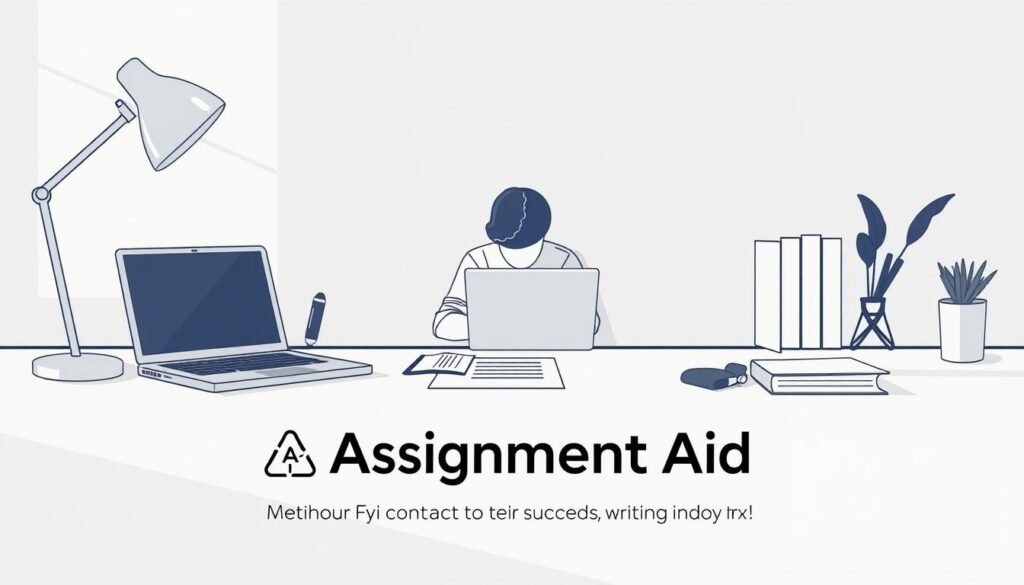
Are you an international student looking to make the most of your time in California? CPT Dog Day 1 CPT programs offer a great chance to gain work experience while studying. But, figuring out how to navigate these programs can be tough.
Day 1 CPT California is a key path for international students wanting to work and study. With strict rules on who can join, it’s important to understand the details. This knowledge is vital for your future in both academics and your career.
These programs let you start working right away, giving you a head start in California’s healthcare field. Schools like Westcliff, CIAM, Sofia, and Humphreys have special Day 1 CPT programs. They can change how you learn and grow.
California’s medical schools and universities have created ways for international students to benefit. By following the rules for on-site attendance, you can open doors to great career opportunities.
Key Takeaways
- Day 1 CPT California offers unique practical training opportunities
- Enrollment restrictions impact all California-based CPT programs
- Understanding university-specific requirements is crucial
- Practical work experience starts from day one of academic enrollment
- Strategic planning can maximize educational and professional benefits
Understanding Day 1 CPT California
Day 1 CPT California is a special chance for international students. It lets them work while they study. Schools like Westcliff University and California Institute of Advanced Management (CIAM) offer programs that mix work and study.
What is Day 1 CPT?
Day 1 CPT lets students start working right when they start school. It’s a new way to learn by doing. Students get to use what they learn in class right away.
Importance of Day 1 CPT in Your Career
Being part of Day 1 CPT can really help your career. It lets you work and study at the same time. This way, you can:
- Learn practical skills
- Get work experience fast
- Meet new people
- Do better in exams
Eligibility Requirements for Day 1 CPT
To get Day 1 CPT in California, you need to meet certain rules. These include:
- Being in a graduate program
- Need for practical training right away
- Training must match your studies
- Getting approval from a DSO
“Day 1 CPT provides a strategic pathway for international students to transform academic knowledge into professional expertise.” – Immigration Education Specialist
Every school has its own rules for Day 1 CPT. So, it’s important to do your research to find the right program for you.
Benefits of Day 1 CPT California
Day 1 CPT California is a special path for international students. It lets them get practical experience while still studying. This program is great for linking what you learn in class to real-world jobs.

Practical Work Experience
Your journey with Day 1 CPT starts with real work. You’ll get into the field right away. This means you’ll learn by doing, not just reading.
- Immediate integration into professional settings
- Hands-on experience in healthcare environments
- Direct application of academic learning
Networking Opportunities
Networking is key for your career. Day 1 CPT California helps you meet people in your field. You’ll make connections that can help your future in medicine.
| Networking Benefit | Impact |
|---|---|
| Professional Connections | Expand industry contacts |
| Mentorship Opportunities | Learn from experienced professionals |
| Career Guidance | Gain insights into physician licensing requirements |
Enhanced Learning Experience
Day 1 CPT California changes how you learn. You’ll develop advanced skills that are more than just book knowledge. This prepares you for the tough challenges in healthcare.
“Education is not the learning of facts, but the training of the mind to think.” – Albert Einstein
Joining these programs gives you an edge. You’ll understand patient care, medical ethics, and how to grow in your career. These skills are crucial for success.
Day 1 CPT California Application Process
Applying for Day 1 CPT California might seem hard, but it’s easier when you know the steps. It’s great for international students looking to train in California’s medical programs.
Key Steps to Apply for Day 1 CPT
Your journey with Day 1 CPT starts with preparation and planning. Here’s how to get your authorization:
- Check if your university allows Day 1 CPT California
- Make sure you’re a full-time student (9-12 credit hours)
- Keep a good GPA (usually 3.0 or higher)
- Find internships that match your studies
- Get all your documents ready for the CPT application
Required Documentation for Day 1 CPT
For a successful Day 1 CPT application, you need the right documents. Here’s what you’ll need:
- A filled-out CPT application form
- A detailed job description for your internship
- A signed letter from your employer
- A letter from your academic advisor
- Your latest academic transcripts
Timeline for Day 1 CPT Approval
Knowing when you’ll get approved helps you plan better. Most schools take 1-3 days, but it might take two weeks during busy times.
“Preparation and timely submission are key to a smooth Day 1 CPT application process.” – Immigration Advisor
Pro tip: Apply for CPT at least two weeks before your internship starts. This way, you avoid delays in getting your work permit.
Compliance with Day 1 CPT Regulations
Understanding Day 1 CPT is complex. It involves knowing immigration policies well. You must follow rules closely to succeed in healthcare education and exams.
Keeping your F-1 visa status is crucial. Recent examples show the need for choosing real educational programs. These programs must meet strict standards.
Understanding Immigration Policies
Day 1 CPT has specific immigration rules:
- Only enroll in fully accredited schools
- Keep up with real educational activities
- Have correct documents for medical education
Maintaining Status with Day 1 CPT
To keep your F-1 visa, you need to:
- Be actively enrolled in a recognized program
- Attend classes regularly
- Show work experience that matches your studies
“Compliance is not optional – it’s the foundation of your international educational experience.”
Consequences of Non-Compliance
Not following rules can lead to big problems. The University of Farmington case in 2019 is a clear example. Eight recruiters were arrested for running fake programs.
Possible penalties include:
- Visa taken away immediately
- Possible deportation
- Harder to apply for immigration in the future
Pro tip: Always check if your school is accredited. Also, keep in touch with immigration officials to safeguard your studies and career.
Preparing for On-Site Attendance under Day 1 CPT
Getting ready for the Day 1 CPT California program needs careful planning. You must know the specific rules and be ready to attend on-site. This will help you succeed.
Pre-Employment Preparations
Before starting your Day 1 CPT, follow these important steps:
- Review clinical practice guidelines thoroughly
- Understand physician licensing requirements
- Develop a comprehensive patient care management strategy
- Gather all necessary documentation
Selecting the Right Employer
Choosing the right employer is key. Look for places that:
- Offer structured learning experiences
- Provide mentorship opportunities
- Support your academic and professional development
- Demonstrate commitment to compliance
“Your employer selection can make or break your Day 1 CPT experience” – Career Development Expert
Best Practices for Your Day 1 CPT Experience
To get the most out of your on-site attendance, follow these tips:
- Document everything – Keep detailed records of your attendance and experiences
- Network actively with professionals in your field
- Leverage on-site sessions for skill enhancement
- Stay proactive about meeting program requirements
Most universities require you to attend on-site from once a month to once a semester. Knowing these rules helps you plan well and keep your F-1 status.
Common Misconceptions about Day 1 CPT California
For international students, Day 1 CPT California can be tough to navigate. Many get confused about medical ethics and professionalism in these training programs.
Myths vs. Facts about Day 1 CPT
Students often face myths about Day 1 CPT California that can harm their training. Here are some key misconceptions:
- Myth: Day 1 CPT works exactly like traditional work authorization
- Fact: Day 1 CPT has specific regulatory requirements
- Myth: Any employer can sponsor Day 1 CPT
- Fact: The job must be directly related to your academic program
Clarifying Confusion about Day 1 CPT
It’s vital to grasp the details of Day 1 CPT to keep your immigration status. Proper documentation and aligning with your academic goals are key.
“Compliance is not optional – it’s the foundation of successful international student work experience.”
Legal vs. Illegal Day 1 CPT Practices
Not all Day 1 CPT programs are the same. Students need to check their options to stay legal.
| Legal Practices | Illegal Practices |
|---|---|
| Work directly related to academic program | Working without proper authorization |
| Maintaining full-time student status | Misrepresenting job responsibilities |
| Documented employer-school partnership | Fraudulent program enrollment |

Your success in Day 1 CPT California relies on knowing these important differences. Start your professional journey with honesty and careful planning.
Future of Day 1 CPT California
The world of Day 1 CPT in California is changing fast. This is true in areas like healthcare education and medical residency programs. These programs give international students a chance to start learning and working right away.
There’s a growing trend of hands-on learning in preparing for board certification exams. Universities are now linking what you learn in class to real-world jobs. This is great for international students aiming for careers in healthcare and tech.
Emerging Trends in Day 1 CPT
Knowing about Day 1 CPT California is key as rules and regulations change. More schools are focusing on getting students to work right away. This is because some jobs need a lot of practical experience.
Impact of Policy Changes on Day 1 CPT
Policy changes are affecting Day 1 CPT California programs. International students need to keep up with new visa rules and work permits. Despite the challenges, these programs are still a good way to get work experience and find jobs in the US.



